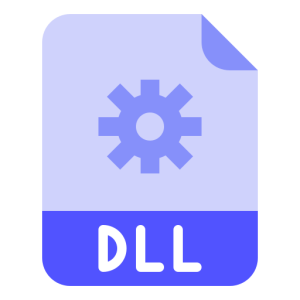Description
OCI.DLL
OCI.DLL is a dynamic link library (DLL) file that is an important component of Oracle Call Interface (OCI), the main programming interface for connecting and interacting with Oracle databases. It provides the necessary functions and routines required for communication between Oracle database servers and applications developed using various programming languages and frameworks.
This DLL file is a fundamental part of the Oracle database software stack and is responsible for establishing a connection to an Oracle database, executing SQL statements, manipulating database objects, and handling transactions. It serves as a bridge between the application and the Oracle database, enabling seamless data retrieval, manipulation, and storage.
OCI.DLL is typically included in the Oracle Instant Client package or the Oracle database client installation. It is essential for any application that needs to interact with an Oracle database and requires the Oracle Call Interface for accessing database resources and functionality.
Purpose and Functionality
OCI.DLL provides a wide range of functions and capabilities to facilitate effective communication and interaction with an Oracle database. Its primary functionalities include:
- Database Connectivity: OCI.DLL enables applications to establish connections to Oracle databases, including local and remote databases. It handles authentication, session management, and the establishment of network connections.
- SQL Execution: The DLL facilitates the execution of SQL statements, including queries, data manipulation operations, and data definition language (DDL) operations. It handles the parsing, optimization, and execution of SQL statements on the Oracle database.
- Transaction Management: OCI.DLL provides support for managing database transactions, allowing applications to control the commit and rollback operations. It ensures the integrity and consistency of data within the Oracle database.
- LOB (Large Object) Manipulation: The DLL offers functions for working with LOBs, such as reading and writing large amounts of data, managing LOB attributes, and performing various operations on LOBs, including creation and deletion.
- Metadata Retrieval: OCI.DLL allows applications to retrieve information about the structure and characteristics of database objects, such as tables, views, indexes, and procedures. It provides functions for querying and retrieving metadata from the Oracle database.
Common Use Cases
OCI.DLL is an essential component for any application that needs to interact with an Oracle database. It is commonly used in the following scenarios:
- Database Connectivity: Applications developed using various programming languages, frameworks, and technologies, such as C, C++, Java, .NET, and Python, rely on OCI.DLL to establish connections and interact with Oracle databases.
- Data Retrieval and Manipulation: Applications that require querying, inserting, updating, or deleting data from an Oracle database utilize OCI.DLL to execute SQL statements and handle the retrieval and modification of database records.
- Transaction Handling: When applications need to ensure data consistency and atomicity, OCI.DLL is employed to manage database transactions, including beginning, committing, and rolling back transactions.
- LOB Manipulation: Applications that deal with large objects, such as multimedia data or documents, employ OCI.DLL to perform operations on LOBs, including reading, writing, and updating large amounts of data.
- Metadata Retrieval: Tools and applications that require information about the structure and characteristics of database objects leverage OCI.DLL to query and retrieve metadata from the Oracle database.

